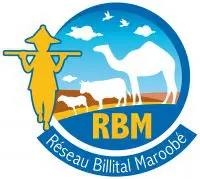Pastoralism is more than livestock production;
it is a way of life, a culture and an identity
Pastoralism
Pastoralism is a livelihood system based on free-grazing animals that is used by communities in marginal areas. The land may be marginal for various reasons, including poor water supply or soil quality, extreme temperatures, steep slopes and remoteness. Pastoralism enables communities to manage their resources in a sustainable, independent and flexible way. It is marked by rights to common resources, customary values and provides important ecosystem functions.
Mobility
For centuries pastoralists have been adapting to the harsh environment and variability of climate thanks to mobility. Mobility is central to pastoralists’ identity and relationships, and enables them to benefit from seasonal pastures, access to water, salt patches, but also markets and other resources and services.
Ecosytstem services
Pastoralism promotes healthy productive eco-system. Pastoral livestock systems contribute to biodiversity conservation and sustainable management of grasslands, which are important carbon sinks.
Customary institutions and traditional knowledge
Pastoralists have strong traditional institutions that regulate the use of natural resources, manage risks, conserve and protect resources and assets and settle conflicts. Through their traditional knowledge and practices they contribute to genetic conservation of livestock.
Land
Pastoral societies have elaborated traditional rules and practices to manage the land and ensure property rights. Nonetheless, land tenure is a major challenge for pastoralists, as most legal frameworks do not recognize customary and collective land-tenure rights.
Valuing pastoralism
Pastoralism is a major contributor to the economy of many countries. Official statistics underestimate its value because pastoralists themselve consume much of what they produce, and a great deal of trade goes unrecorded.
Inclusive policy making
Pastoralists are usually excluded from decisions on policy and governance. As a result, they suffer from unfair market and trade conditions and from limited access to primary services and basic infrastructures. Decisions and planning need to be inclusive and made in a participatory way, involving all concerned stakeholders in the territorial level. Projects need to be adapted to the needs of pastoralists, and to their mobile lifestyle.










